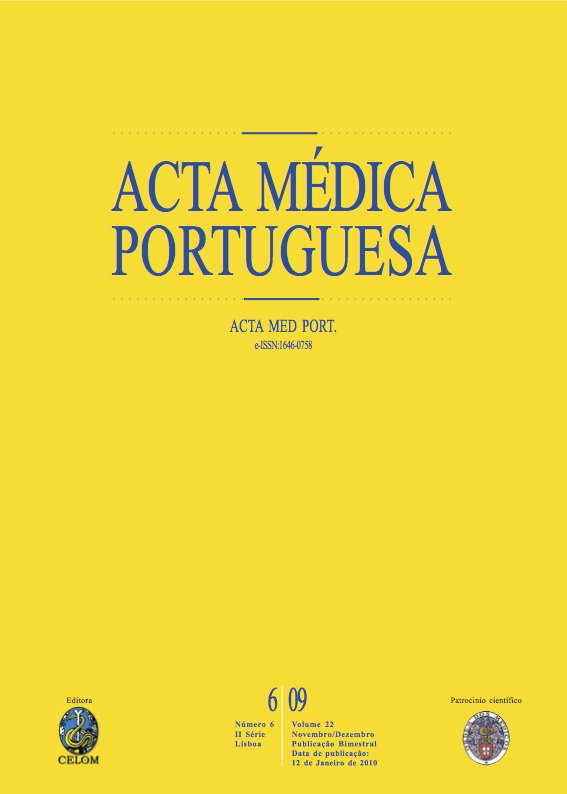Intra and extra-familiar sexual abuse.
DOI:
https://doi.org/10.20344/amp.1735Abstract
The sexual abuse of a child or young person constitutes a major social and public health problem and there is recent evidence that intra-familial (IF) sexual abuses are more serious in their consequences than extra-familial (EF). However, there are no studies on this phenomenon in Portugal. Thus, the aim of the present study is to contribute to a better characterization of these types of abuses and to identify possible differences between IF and EF cases. A retrospective study was preformed based on medico-legal reports related to victims below the age of 18, suspected of being sexually abused (n = 764), corresponding to 67% of the total of observed sexual crimes. Results revealed that 34.9% of the abuses are IF and they show statistically significant differences when compared to EF cases. These are due to the following factors found in IF situations: a) lower victim age; b) closeness between victim and abuser; c) abusers with a higher rate of previous sexual abuse; d) sexual practices of reduced physical intrusion; e) decreased physical violence but increased emotional violence; f) greater delay between last abuse and the forensic exam; g) reduced number of injuries or biological evidence (none in the great majority of the cases). Results point out the existence of several characteristics in IF abuse that have been identified as factors that influence the severity of the abuse consequences. Among them are: a) lower victim age; b) greater proximity to the abuser; c) increased amount of emotional violence. These factors account for the reduced visibility of this kind of cases and therefore explain their delayed disclosure and diagnosis. The association of this fact with the reduced intrusiveness of this sort of practice and the consequent decrease in number of injuries and other evidence leads to a marked reduction of the number of cases where evidence of the abuse can be found by physical examination alone. The above aspects underlie the need of using different strategies to diagnose and support the victims, namely, systematic denouncement by professionals who suspect this type of abuses, and systematic forensic psychological examination for better valorization of the victim's testimony as well as the veracity of its content.Downloads
Downloads
How to Cite
Issue
Section
License
All the articles published in the AMP are open access and comply with the requirements of funding agencies or academic institutions. The AMP is governed by the terms of the Creative Commons ‘Attribution – Non-Commercial Use - (CC-BY-NC)’ license, regarding the use by third parties.
It is the author’s responsibility to obtain approval for the reproduction of figures, tables, etc. from other publications.
Upon acceptance of an article for publication, the authors will be asked to complete the ICMJE “Copyright Liability and Copyright Sharing Statement “(http://www.actamedicaportuguesa.com/info/AMP-NormasPublicacao.pdf) and the “Declaration of Potential Conflicts of Interest” (http:// www.icmje.org/conflicts-of-interest). An e-mail will be sent to the corresponding author to acknowledge receipt of the manuscript.
After publication, the authors are authorised to make their articles available in repositories of their institutions of origin, as long as they always mention where they were published and according to the Creative Commons license.









